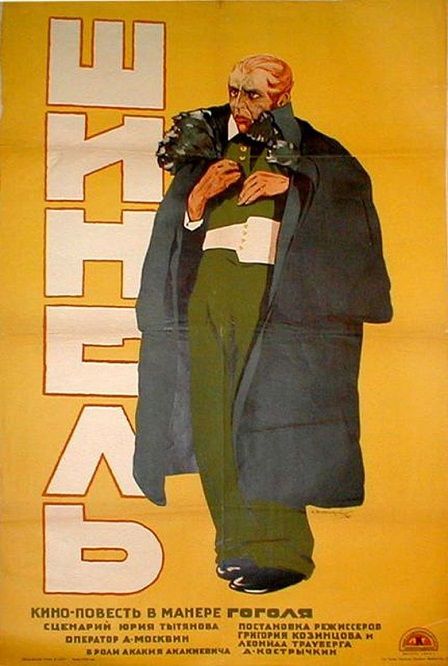Nikolay Gogol and the comic and tragic in his novel "The Overcoat"

As aesthetic categories, the comic and the tragic in the construction of their images have endured many writers. Nikolay Vassielievic Gogol, in a comic aspect, reveals his characters in the novel "Dead Souls." The most ironic is Plushkin's writer, whom he calls "the hole of mankind." The tragic comes when a character brings noble feelings but does not find happiness in life. In "The Overcoat" Gogol builds the image of the Depertemenian clerk Akaky Akakievich. The tragic we find in the fate of this man, who can not defend himself, does not know how to seek his rights. The comic comes from his intellectual limitation, his dress, the attitude of others to him. He is a man offended by fate. Even at birth, it is difficult to find what name they give him-they call him as his father. It is not known how, with his limited mental capabilities, he becomes a clerk. His task is to transcribe the official notes and he himself becomes a typewriter. The content of the transcript does not interest him. Outside does not look at anyone, he does not care about entertainment. His zeal in the service is rewarded with a little promotion. It is very difficult for him to change the verbal time and the face of the reports he prepares. Can not overcome this difficulty. Naturally, he is the subject of irony for others. comical personality. The comic is also reinforced by its appearance. His overcoat, as is the title of the narrative, is all in patches. Even the tailor who presents himself as his friend directs him to buy a new overcoat. The tragic comes from his financial situation. Namely, Gogol protects the average person who can afford nothing but meager food. He has gathered 40 rubles from his miserable clerical office, and he needs more of his overcoat. He is subjected to deprivation, to hunger and finally to a new overcoat. From the environment, they greet him and want the new garment to shed.

The sad problem is that there is no money. Gogol is not indifferent to his character because he is a humanist writer. He always defends the oppressed. He can not conceal his intellectual limitations, but he can not blame him for his unhappy fate, for poverty, for his endeavor to live. Tragic comes very recently when his new overcoat disappears. Akaky faces the greatest trouble - he has to wear the shinny overcoat and wake up again for the others. He does not find any words to tell the general how the brigands attacked him, how they beat him and took his overcoat. The General sees in front of him a negligent poor man who does not know what he wants. Roughly kicks him out. The acacian anguish continues. From his strong experiences that nobody understands it, nobody helps, ill, and dies. We still accept Gogol as the defender of the ordinary man and critical of the high-ranking personalities. No one knows the death of Akaky. The general guesses the visit, touches and seeks it, but Akaky humblely buried. There was a rumor that he was alive and that he stripped new shins at night. The Dead Man is hiding under a bridge. There is a general embarrassment - even the guards are afraid for themselves. One day the unknown thief picks up the overcoat of the general. From that moment on, the bushes no longer disappeared. Gogol, with irony, emphasizes that the garment looks good.
Gogol himself does not ridicule his character - irony comes from the others. The aim of the writer is to cause compassion to stir the reader with the picture of human humiliation. On the other hand, he wants to awaken feelings for all unhappy. In fact, Akaky is a good-natured man. He has a noble heart, but in his misfortune he dies. It is a tragic image for us, because it brings goodness and does not find happiness in life. The clergy mock him, and he says, "Leave me, why are you insulting me?" So the writer compares the two worlds: the proud, the high, the wealthy, and on the other hand the humiliated and the afflicted who carry noble hearts do not interfere with anyone , but they want to live. The story is excited by Gogol's ability to protect the ordinary man and to counter the mockery of the proud, arrogant, heartless writers. They are the subject of irony in most of his work - "Portrait", "Dead Souls" and others.
You got a 5.80% upvote from @postpromoter courtesy of @godflesh!
Want to promote your posts too? Check out the Steem Bot Tracker website for more info. If you would like to support the development of @postpromoter and the bot tracker please vote for @yabapmatt for witness!